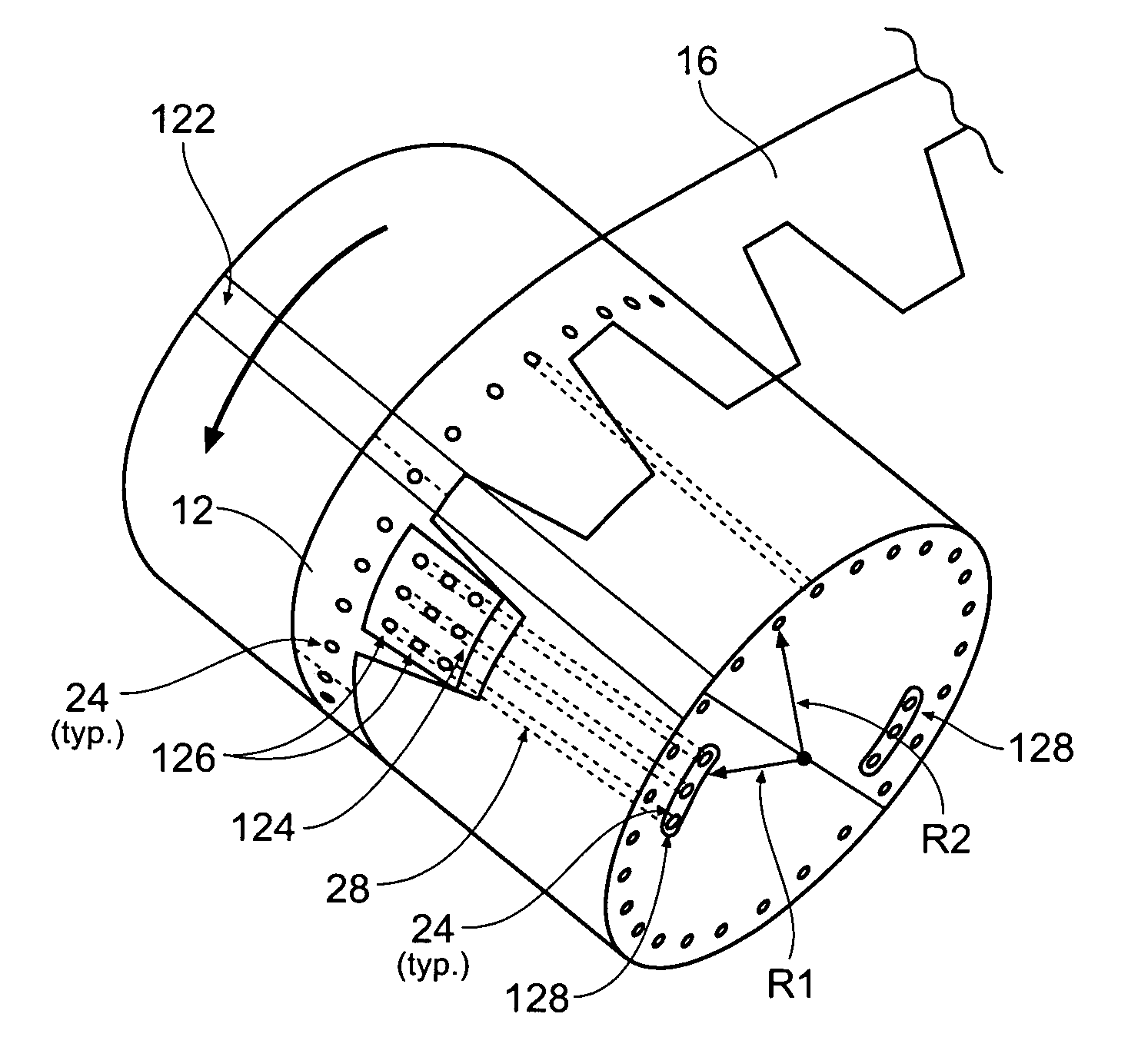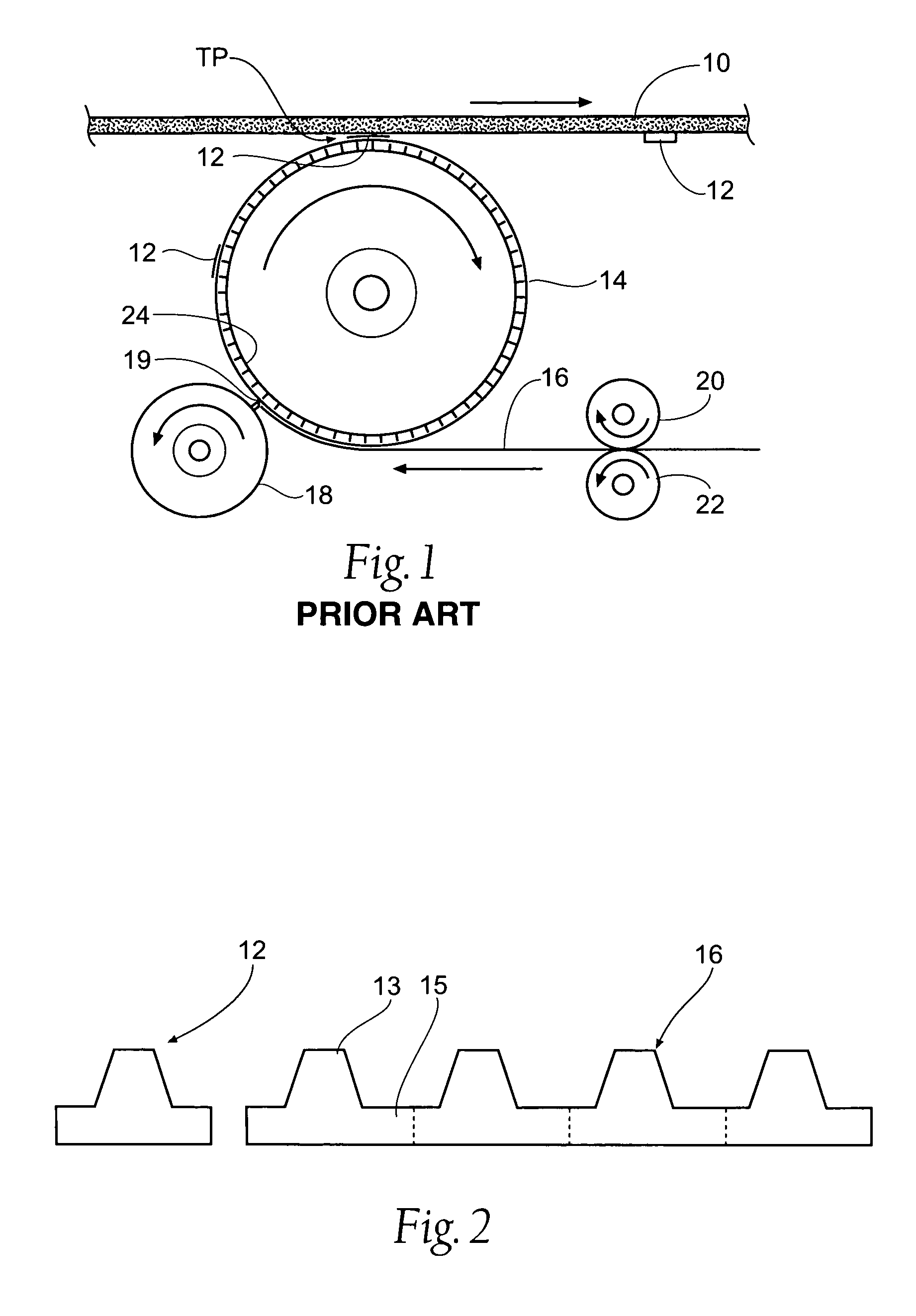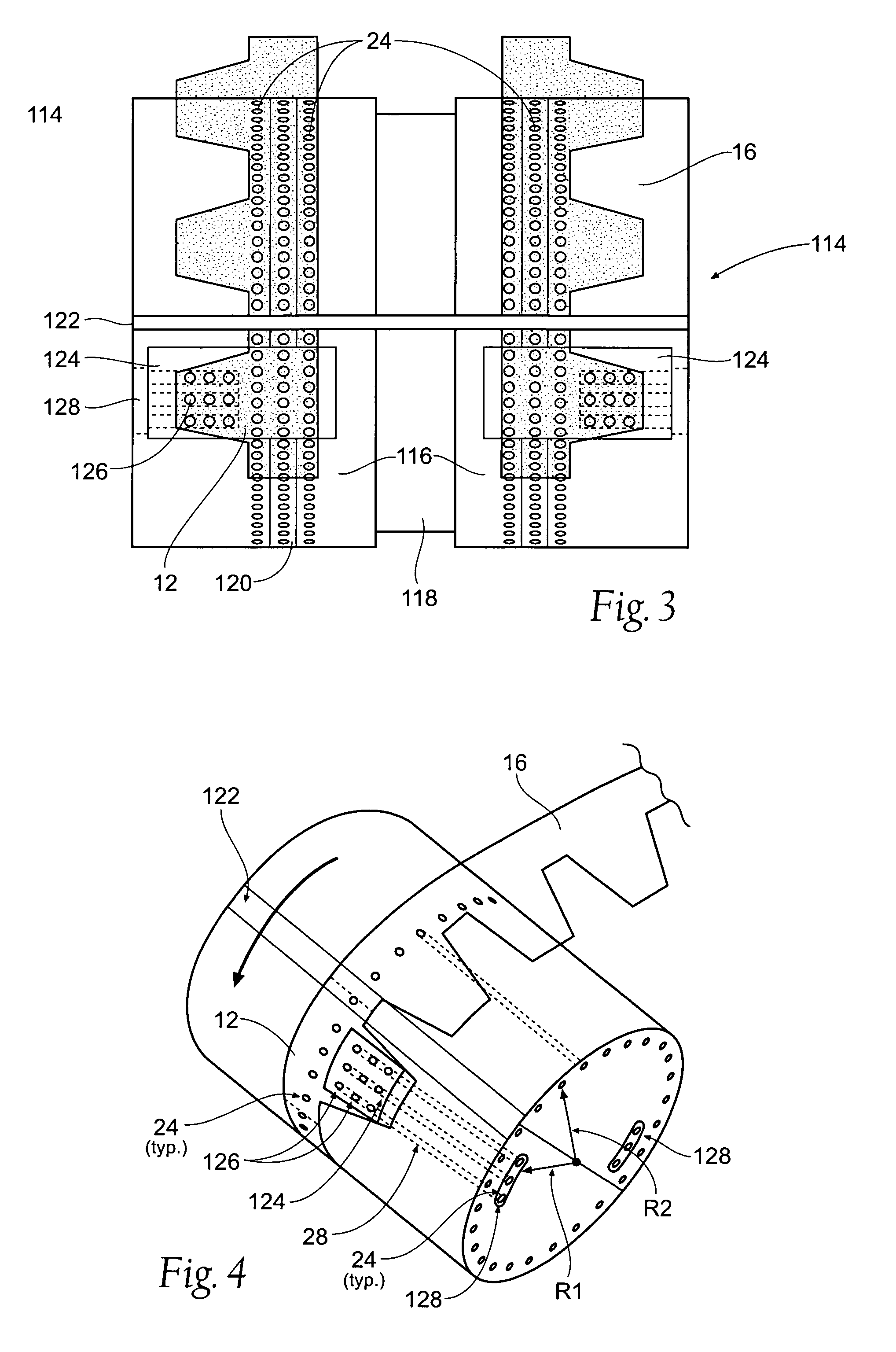High speed vacuum porting
a vacuum porting and high-speed technology, applied in the field of disposable hygiene products, can solve the problems of slipping and cutting applicators, loss of control of the infeeding web, and increasing the build-up of stress, and achieve the effect of high speed
- Summary
- Abstract
- Description
- Claims
- Application Information
AI Technical Summary
Benefits of technology
Problems solved by technology
Method used
Image
Examples
Embodiment Construction
[0021]Although the disclosure hereof is detailed and exact to enable those skilled in the art to practice the invention, the physical embodiments herein disclosed merely exemplify the invention which may be embodied in other specific structures. While the preferred embodiment has been described, the details may be changed without departing from the invention, which is defined by the claims.
[0022]Referring to the drawings there is seen in FIG. 1 a diagrammatic illustration of a prior art process for applying tabs to webs in a diaper making process. The present invention can use this prior art method of affixing the ears 12 to the web 10, with a different anvil, the new anvil 114 described below. Web 10 is a composite material used in formation of diapers which is generally formed of various layers of material such as plastic back sheets, absorbent pads and nonwoven topsheets. A series of ears 12 are applied to web 10. In the illustrated process a rotatable vacuum anvil 14 is used to ...
PUM
| Property | Measurement | Unit |
|---|---|---|
| radius | aaaaa | aaaaa |
| speed | aaaaa | aaaaa |
| surface speed | aaaaa | aaaaa |
Abstract
Description
Claims
Application Information
 Login to View More
Login to View More - R&D
- Intellectual Property
- Life Sciences
- Materials
- Tech Scout
- Unparalleled Data Quality
- Higher Quality Content
- 60% Fewer Hallucinations
Browse by: Latest US Patents, China's latest patents, Technical Efficacy Thesaurus, Application Domain, Technology Topic, Popular Technical Reports.
© 2025 PatSnap. All rights reserved.Legal|Privacy policy|Modern Slavery Act Transparency Statement|Sitemap|About US| Contact US: help@patsnap.com



